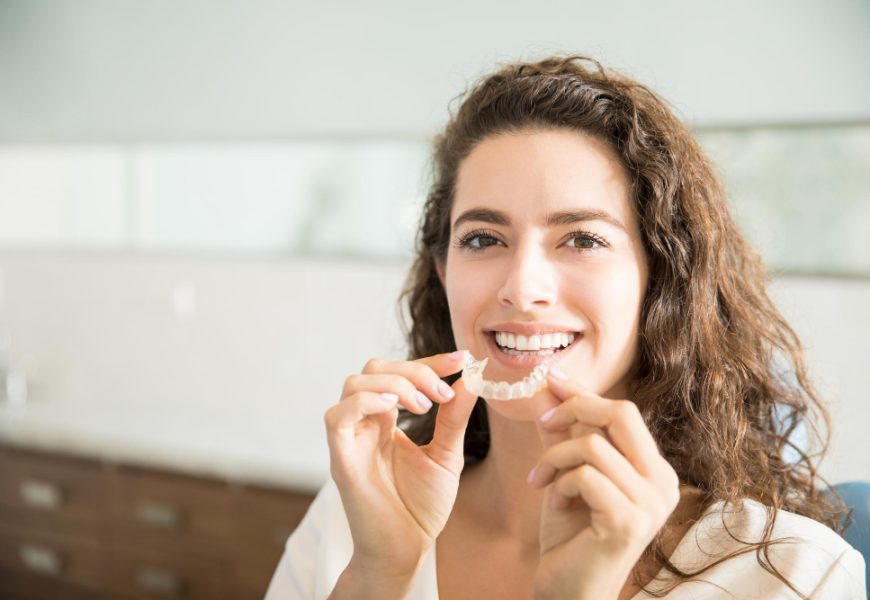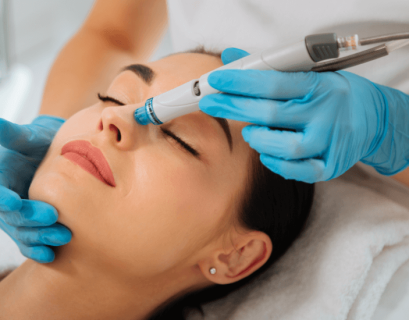- Plaque Buildup: Braces create many small spaces where plaque can accumulate. This sticky film of bacteria can lead to tooth decay if not removed regularly.
- Gum Disease: Poor oral hygiene can cause your gums to become inflamed and bleed easily, which are early signs of gingivitis. If not addressed, this can develop into periodontitis, a more severe form of gum disease.
- White Spots and Tooth Decay: Failure to clean your teeth properly can lead to the formation of white spots, which are early signs of tooth decay. These spots may remain even after your braces are removed, leaving permanent marks on your teeth.
- Cavities: The wires and brackets of braces can trap food particles, leading to the growth of bacteria that cause tooth decay.
- Gingivitis: Inflammation of the gums is common among people who do not maintain proper oral hygiene while wearing braces. This can result in red, swollen, and bleeding gums.
- Bad Breath: Food particles that get stuck in your braces can lead to bad breath if not cleaned regularly. This is because bacteria feed on these food particles, producing unpleasant odors.
- Prolonged Treatment: Neglecting oral hygiene can delay your orthodontic treatment. Dental issues like cavities or gum disease may need to be treated before your braces can be adjusted, extending your overall treatment time.
- Brush After Every Meal: Brushing your teeth after every meal is crucial when you have braces. Use a soft-bristle toothbrush or a specially designed orthodontic brush to clean your teeth and braces. Spend at least two minutes brushing, ensuring you clean around the brackets and under the wires.
- Use a Fluoride Mouthwash: Rinsing with a fluoride mouthwash can help strengthen your enamel and prevent tooth decay. Fluoride is essential for protecting your teeth from the increased plaque buildup that can occur with braces.
- Floss Daily: Flossing with braces can be challenging, but it is essential for removing food particles and plaque from between your teeth. Use a floss threader or a water flosser to make the process easier and more effective.
- Regular Dental Check-ups: Schedule regular visits to your dentist and orthodontist for professional cleanings and check-ups. These appointments are crucial for ensuring that your teeth and gums remain healthy throughout your treatment.
- Avoid Sugary and Sticky Foods: Foods like candy, gum, and sugary snacks can easily get stuck in your braces and contribute to plaque buildup. Stick to a balanced diet with fewer sugary treats to protect your teeth and gums.
The Role of Celebrate Dental & Braces in Oral Hygiene
At Celebrate Dental & Braces, we understand the importance of maintaining excellent oral hygiene during orthodontic treatment. Our team provides thorough guidance on how to care for your teeth while wearing braces. We emphasize the significance of regular check-ups and cleanings as part of our comprehensive care to ensure the best results for your smile.Oral Hygiene with Braces: More Than Just Clean Teeth
Maintaining oral hygiene with braces goes beyond just preventing cavities and gum disease. It’s about ensuring that your orthodontic treatment is effective and that your teeth remain healthy and beautiful after the braces are removed. Poor oral hygiene can have long-lasting effects on your teeth, such as permanent discoloration or damage that may require further dental treatments.Health Risks of Poor Oral Hygiene
The consequences of poor oral hygiene extend beyond your mouth. Bacteria from your mouth can enter your bloodstream and contribute to serious health problems such as heart disease, stroke, and respiratory issues. There is also a link between poor oral health and chronic conditions like diabetes and dementia. Therefore, maintaining good dental hygiene is essential not only for your smile but for your overall health.Orthodontic Treatment and Oral Hygiene: A Vital Partnership
Your orthodontic treatment is an investment in your future smile. However, the success of that investment depends heavily on how well you care for your teeth during the process. Poor hygiene can prolong your treatment, make it more expensive, and compromise the results. By committing to a diligent oral care routine, you can ensure that your braces do their job effectively and that your teeth remain healthy and strong.Simple Tips for Braces Care
Taking care of your braces doesn’t have to be complicated. Here are some simple tips to make the process easier:- Brush Your Teeth at Least Twice a Day: Use fluoride toothpaste and a soft-bristle toothbrush to clean your teeth and braces. Make sure to brush after every meal if possible.
- Use Interdental Brushes or Floss Threaders: These tools can help you clean between your teeth and around your braces more effectively than regular floss.
- Change Your Toothbrush Regularly: Replace your toothbrush every two months or sooner if the bristles become frayed. A worn-out toothbrush is less effective at cleaning your teeth and braces.
- Consider Using a Water Flosser: Water flossers can be a great addition to your oral hygiene routine, especially if you find traditional flossing challenging with braces. They help remove food particles and plaque from hard-to-reach areas.
- Avoid Sugary Snacks and Drinks: Sugary foods and beverages can lead to plaque buildup and increase your risk of cavities. Opt for healthier snacks and drink plenty of water to keep your mouth clean and hydrated.
Visited 6 times, 1 visit(s) today




















